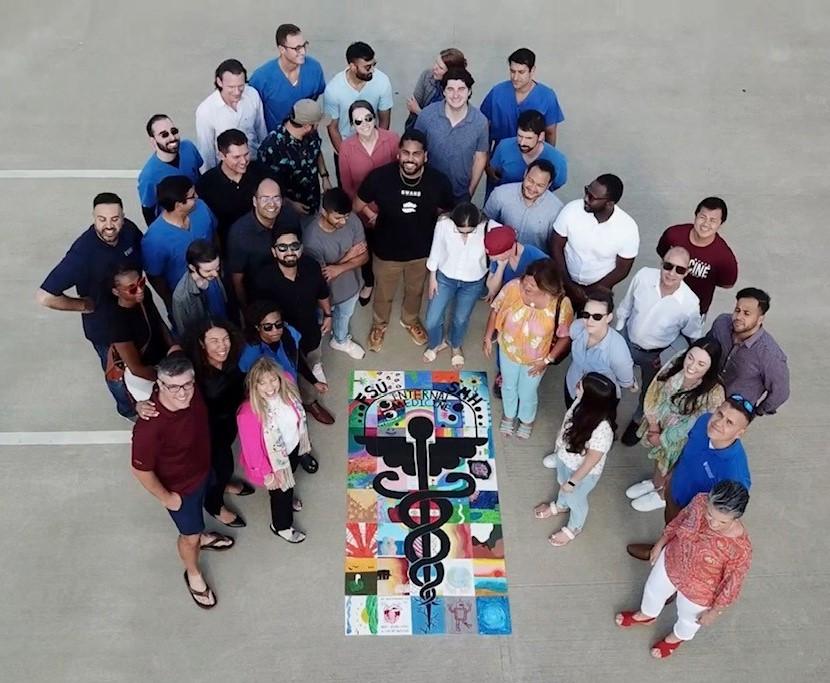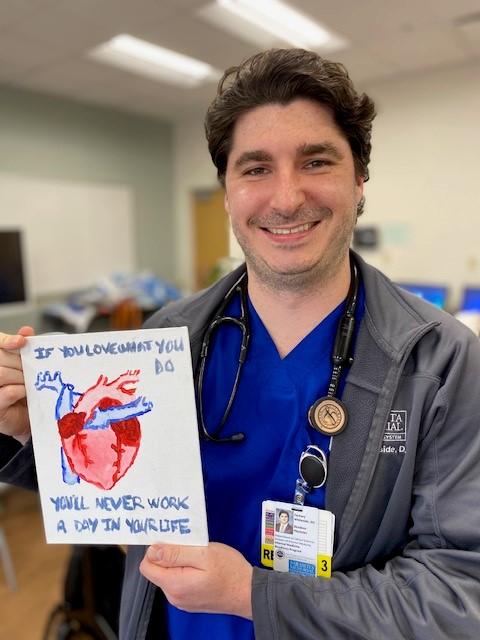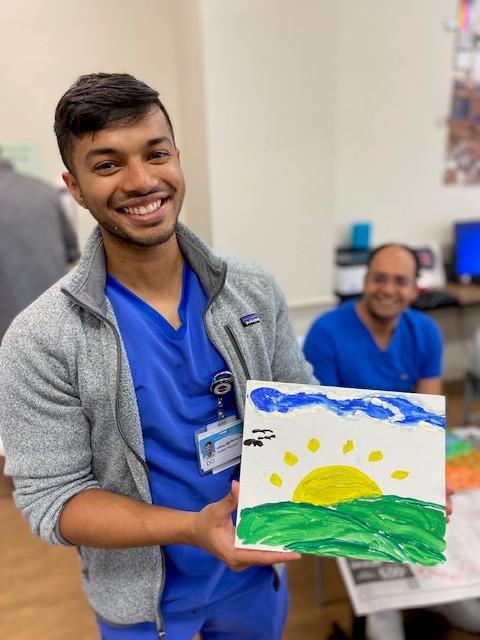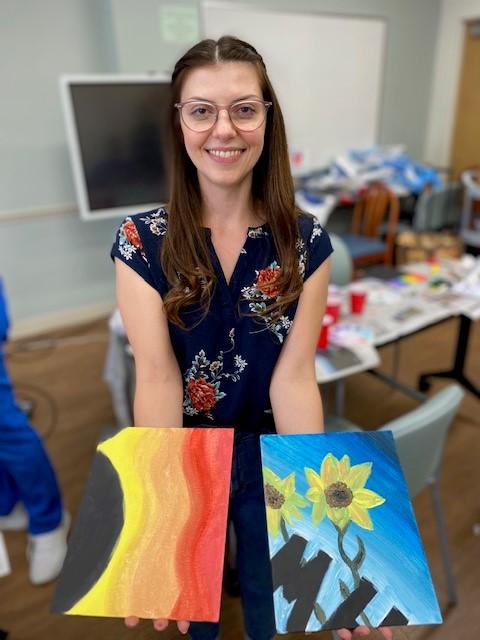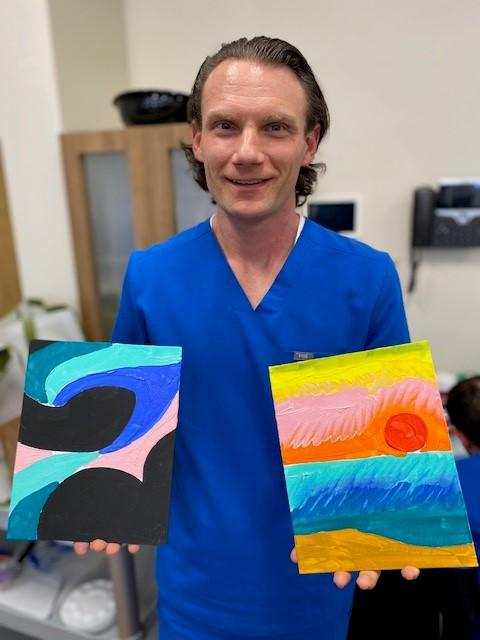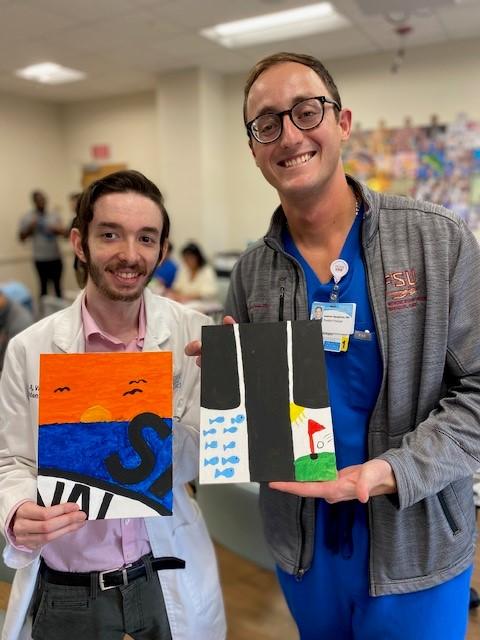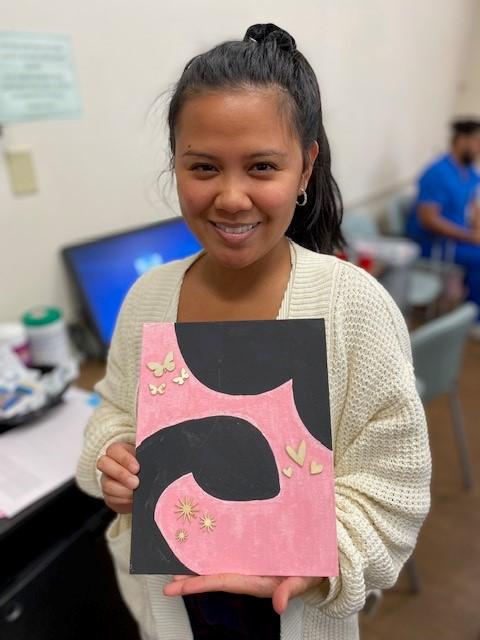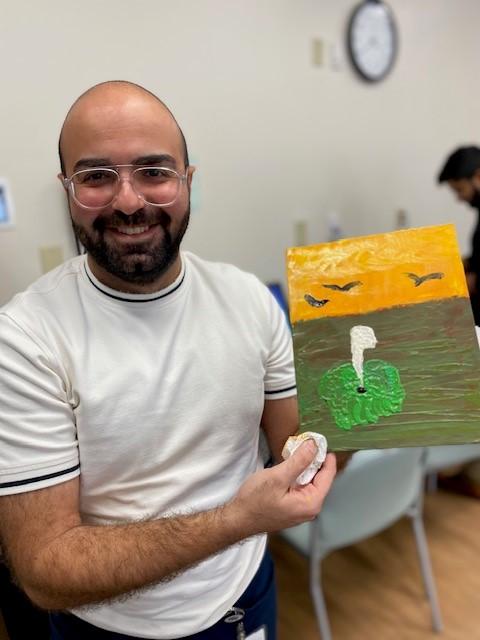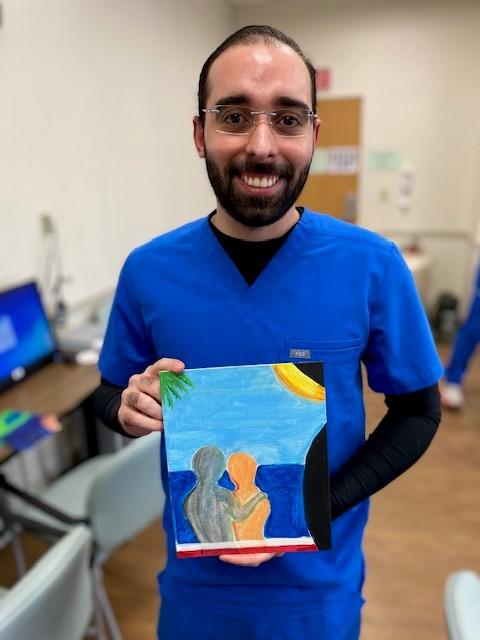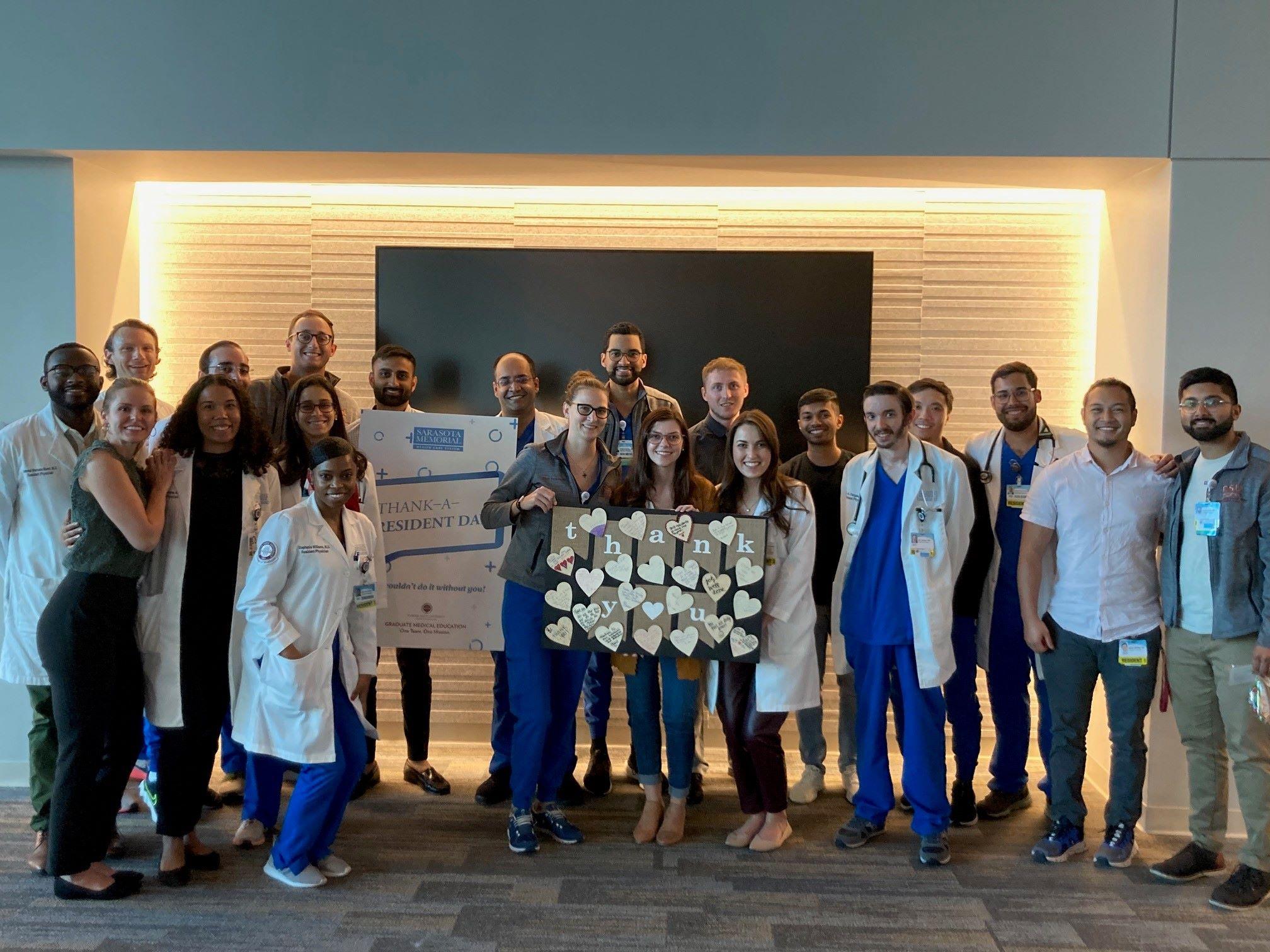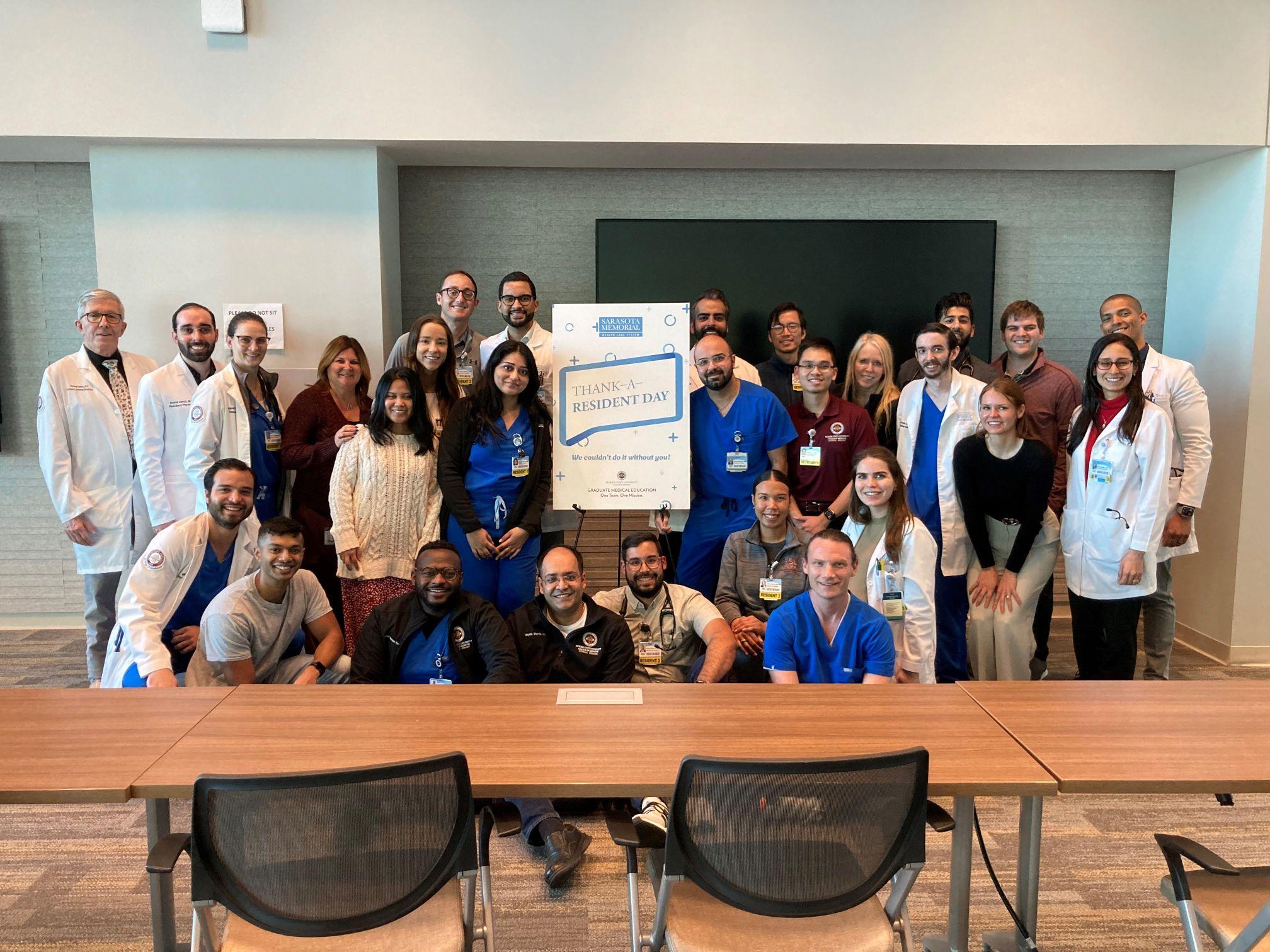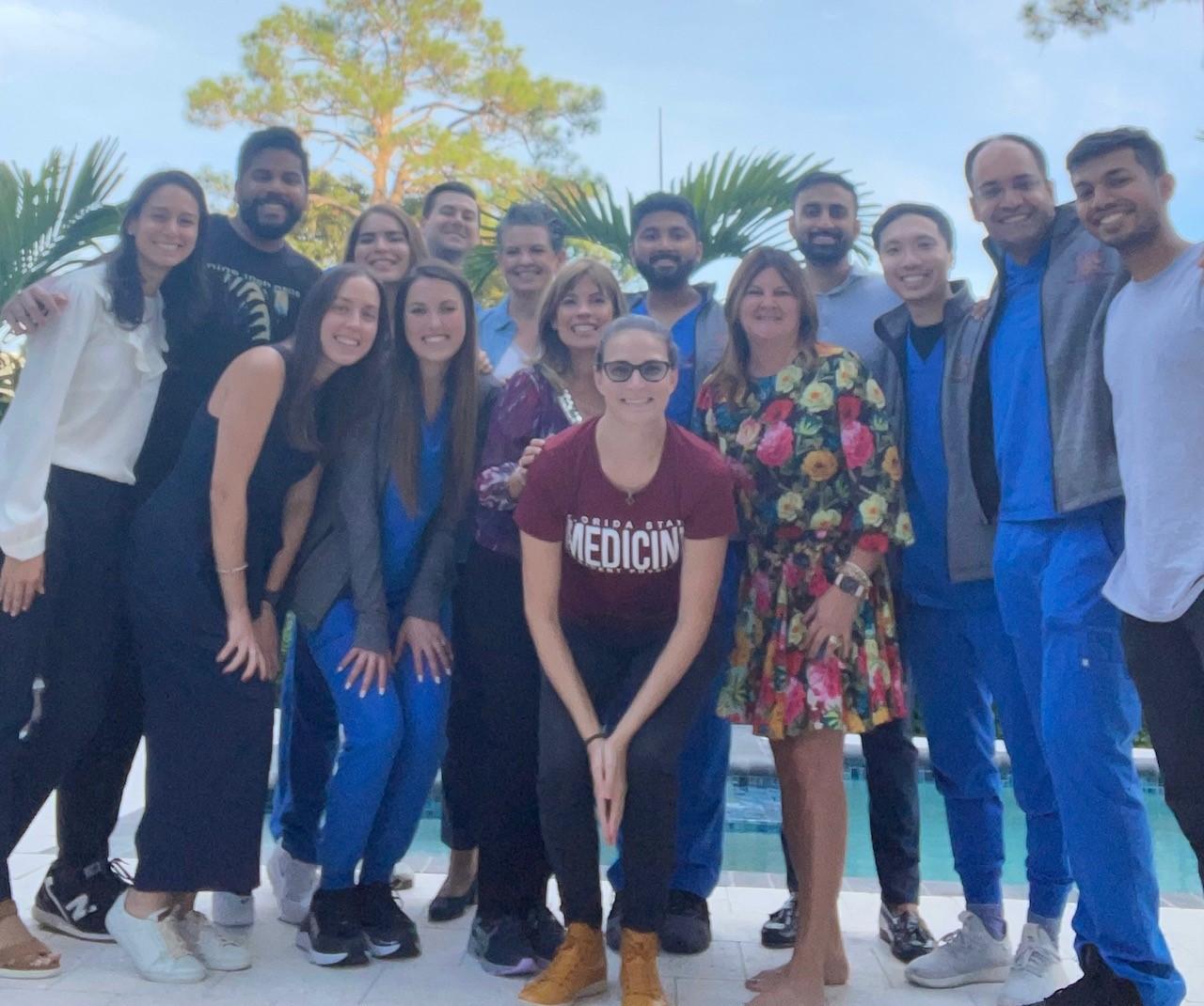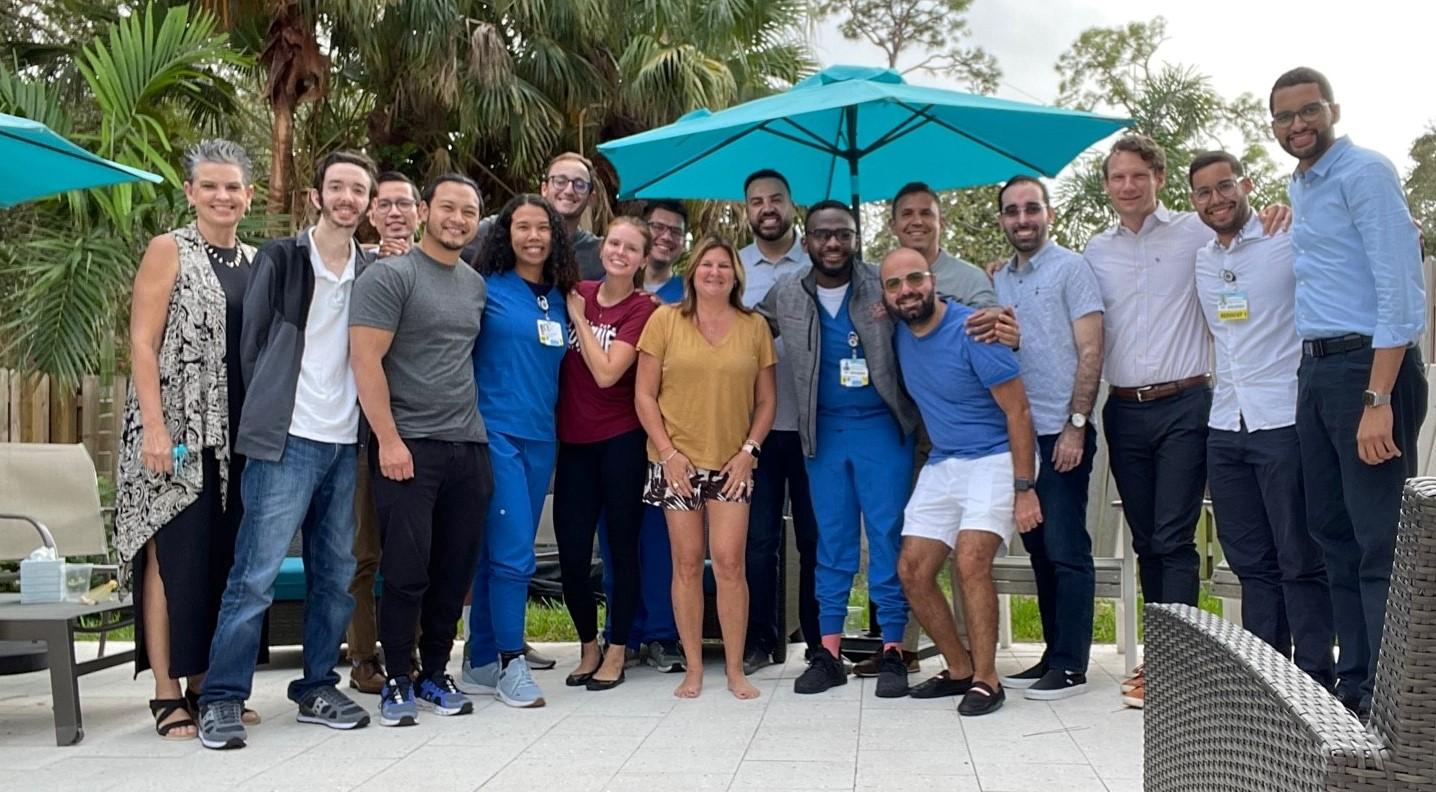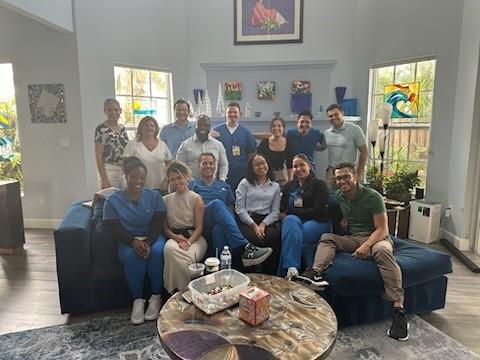Wellness
Wellness can be defined as an active process of making choices in multiple dimensions of body, mind, and spirit that lead toward healthier ways of living. Wellness for physicians has not been consistently defined in the literature but currently, it is thought to encompass dimensions that include low emotional distress, career purpose, health behavior, and cognitive flexibility.
We have designed and implemented our residency program based on a concept of creating an "Environment of Wellness" with a desire to take wellness beyond the superficial level. All decisions with regard to program curriculum are looked at through a “wellness lens”. We acknowledge that resident wellness is affected by the health and environment of the Internal Medicine Residency Program. We develop schedules that reflect a commitment to healthy living with the involvement of protected academic, research, and leisure time built in, with an X+Y schedule template which allows for a minimum of 1 week without call per month. We also have a dedicated wellness director who is instrumental in both curricular design and implementation regarding issues of wellness and also functions as a resource to residents.
Wellness within the Internal Medicine Residency Program is directly incorporated into our curriculum with monthly wellness sessions and bi-annual retreats that are specifically designed for each class. From personal finance to personal health and wellness, we encompass a multi-disciplinary approach to wellness within the Program.
“Beyond Wellness: A Roadmap to Finding and Holding on to the Light in Medicine” – A Program’s Perspective
Karen Hamad, MD - Associate Program Director & Associate Professor of Clinical Sciences; Jill Scarpellini, PhD - Director of Wellness Program; Wilhelmine Wiese-Rometsch, MD – Founding Program Director & Professor of Clinical Sciences Florida State University Internal Medicine Residency Program at Sarasota Memorial Hospital
Wellness in the health professions has become a national conversation that must begin to define our culture as well as equip our students and trainees. Upon designing our Internal Medicine Residency Program, we were intentional in not only creating an exemplary educational curriculum, but in creating a culture of wellness as well. Our hope is that just as our learners will take the traditional educational tools for lifelong learning far beyond their three years of residency, so will they also incorporate the personal and professional principles of wellness they have experienced in our program.
Cultural, physical, mental, spiritual and workplace concerns all impact wellness. The program identified a content expert, devoted financial resources, and provided protected time for curricular development and implementation. Our content expert is a psychologist who regularly observes, participates in and debriefs critical programmatic elements such as the Clinical Competency and Program Evaluation Committees. This allows us to not only provide a wellness curriculum for our learners, but also offers the program with an opportunity to gauge the overall culture of our learning environment. In order to provide a safe environment for confidential feedback from residents on program specific issues, the sessions are resident-only and facilitated by our psychologist. The psychologist then synthesizes the information to leadership in a deidentified manner.
We think of our curriculum as a roadmap that provides residents with a true wellness toolkit. These lessons learned will empower them to embrace the “light” of their careers while learning to face the challenges inherent in the profession of medicine. The curriculum incorporates didactics, workshops, retreats, panel discussions, resident confidential feedback, and journaling activities that promote self-reflection. The program assigns scheduled reflection journaling activities and incorporates these themes in the longitudinal curriculum. Other activities acknowledge cultural differences both within the program and in terms of patient care. One specific area of concern is dealing with end-of-life issues from personal and professional standpoints. One of our most successful retreats focuses on gratitude as a form of resilience. In this activity, participants go off site and reflect on those most important to them and share their reflections.
When possible throughout the curriculum, sessions will include experiences of known residents or Attendings discussing personal work-related challenges (death of a patient, depression, ethical dilemma, moral distress, personal conflict, etc.). By including faculty from various disciplines and other members of the healthcare team appropriately sharing their work-related experiences, residents are reminded that these are commonly occurring challenges thereby destigmatizing them, building a culture of support, and exposing residents to a variety of perspectives. A work-life balance panel including faculty, spouses, and leadership was an effective tool to emphasize the need for life-long attention to wellness. This panel was moderated by our psychologist to keep it focused and to reframe lessons learned.
Finally our program designed residents’ schedules to reflect a commitment to healthy living. Residents have protected academic, research, and leisure time built into their schedules. An X + Y schedule allows for a minimum of one week without call per month. During their academic half-day and other mandatory conferences, faculty cover clinical duties allowing residents to focus on their education.
Our program tackles wellness through a multi-pronged approach in the hopes of providing depth and breadth of content, allowing our residents to thrive in a well-rounded and healthy environment. Our faculty not only teaches but models our culture of wellness. We believe that this is the key to long-term, sustainable physician happiness.


